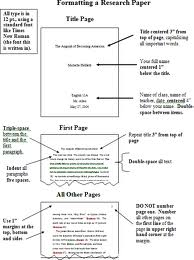Module 7: The Research Paper
Posted By: Vivian D. Peremacio
Posted By: Vivian D. Peremacio
Sources: 1. http://researchpaperstar.com/research_paper_definition
2. http://www.google.com.ph/images?hl=tl&biw=1024&bih=580&gbv=2&tbm=isch&
sa=1&q=research+paper+outline&aq=3&aqi=g10&aql=&oq=research
3. http://www.personal-writer.com/blog/7-most-popular-types-of-research-papers
_________________________________
What is a Research Paper?
Words and their meaning will remain ambiguous to your audience and your main objective in writing an academic research paper is for it to be read and understood by your audience. This objective will be defeated if your readers are unable to understand the message in your research paper.
When you seek to undertake such an academic task, you should know that your main aim in writing will be to undertake an extended definition. Therefore, you need to stay focused on your purpose, audience and tone. This means that your research paper may take one or more writing edges. For example, an extensive definition may mean your paper should be an informative or expository research paper or in another situation, you will be required to move beyond pure information and take on a persuasive edge and this will also warrant you to incorporate some aspects of a persuasive research paper into your research paper.
Begin by formulating an effective definition. You may begin writing with a brief formal definition and this may consist of a dictionary definition, a textbook definition or your own thoughts. This brief definition can then be expanded with supporting details. Remember that writing an effective definition is a way to differentiate between what your topics is, from what your topic is not. However, when you use this approach to begin your research paper, steer clear of using tired openers such as ‘the dictionary provides that…’ Keep in mind that it is a poor way to start writing.
Your readers will take this to mean there is no imaginative meaning in your definition and in the whole of your research paper. You should also keep yourself away from definitions that are not grammatically sound. Also avoid circularity when making definitions. Circularity is saying the same thing over and over, or using different words and phrases to define the same thing. Remember that this is just a way to use more words to meet the word limit and a good reader will be able to notice this.
Always organize the materials that develop every definition you make. You can use so many patterns to develop a definition. You can use a narration, a description, a process analysis or a compare and contrast. Each of these patterns or a combination of two or more can be used.
Types of Research Papers:
ARGUMENTATIVE PAPERS present two sides of a controversial issue in the one paper. A good argumentative paper will include in-text citations from researchers that present logical facts from both sides of an issue, and will conclude with the author analyzing the pros and cons of each argument. The confusing element of an argumentative paper is that the author is expected to favor one side more than the other on an issue, but the research and analysis must be un-emotive and factual and include both sides of the argument. For example a student may be asked to complete a paper on "The importance of nature and nurture on a child's predicted teenage behavior." The author may believe that either nature or nurture may be more important from their own research on the issue but a good paper on this topic will include information from researchers on both sides of the problem, and even in this case information from researchers that believe both sides are equally important.
ANALYTICAL PAPERS also include information from a range of sources but the focus on this type of research paper is in analyzing the different viewpoints represented from a factual rather than opinionated standpoint. The author of an analytical paper may focus on the findings, methodology or conclusions of other researchers and will conclude such a paper with a summation of the findings and a suggested framework for further study on the issue.
ANALYTICAL PAPERS also include information from a range of sources but the focus on this type of research paper is in analyzing the different viewpoints represented from a factual rather than opinionated standpoint. The author of an analytical paper may focus on the findings, methodology or conclusions of other researchers and will conclude such a paper with a summation of the findings and a suggested framework for further study on the issue.
DEFINITION PAPERS are relatively self-explanatory. They describe a topic from a factual standpoint that is usually devoid of emotion or the opinion of the author. Although the definition research paper will include facts from a variety of sources, this information is left unanalyzed and contains only actual facts found in another's research paper findings. While a definition paper might be considered difficult to write especially by those students who enjoy discussing issues from their own perspective a good definition paper can provide a valuable information framework for other argumentative or analytical reports on the same topic.

0 comments:
Post a Comment